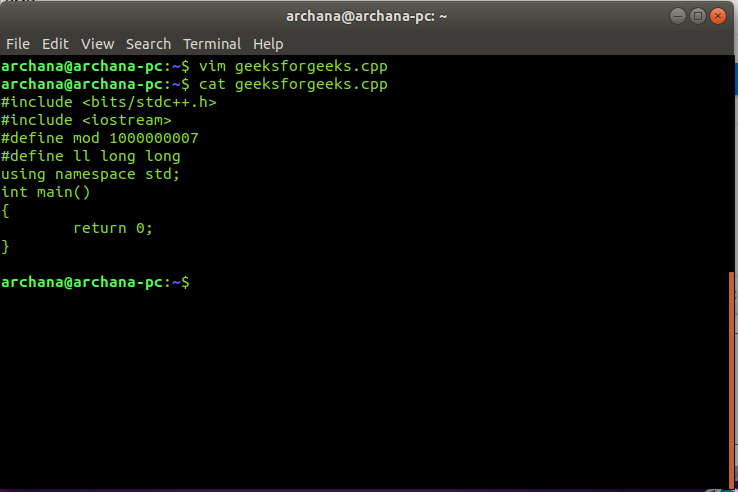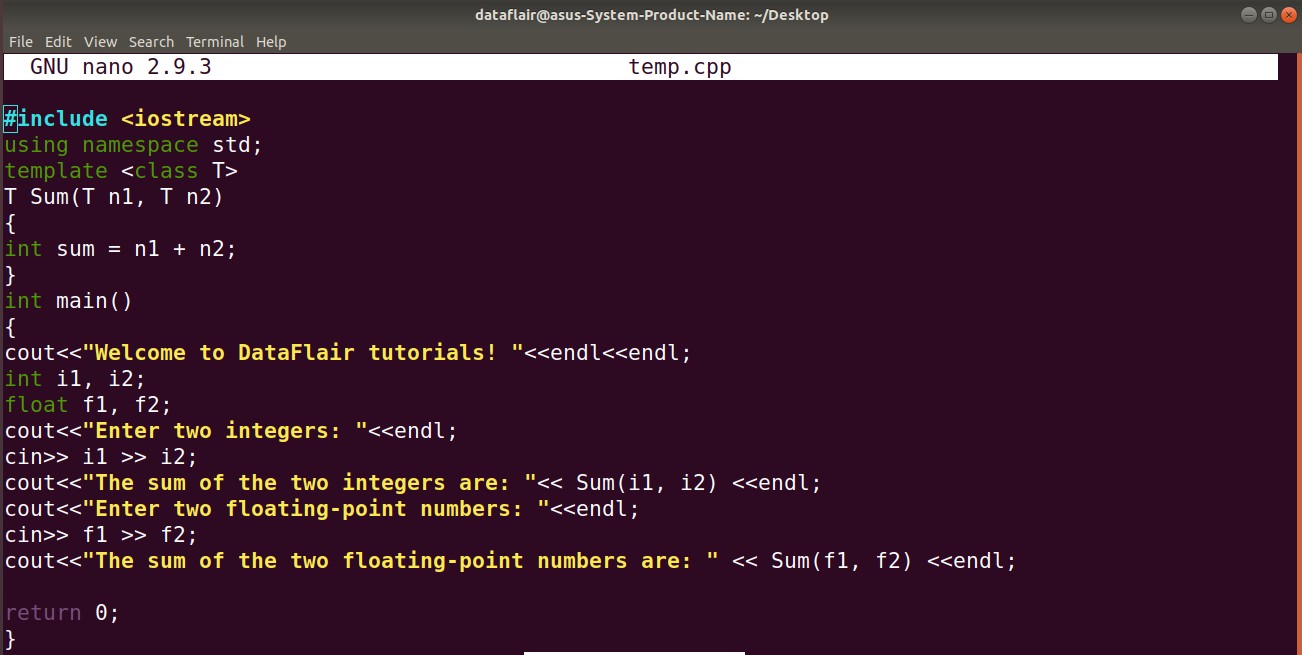C++ Template Specialization
C++ template specialization - Templates in c++ is defined as a blueprint or formula for creating a generic class or a function. A template has only one type, but a specialization is needed for pointer, reference, pointer to member, or function pointer types. 19.3 function template specialization back to table of contents. // generic template vector just like arrays, vectors use contiguous storage locations for their elements, which means that their elements can also be accessed using offsets on regular pointers to its elements, and just as efficiently as in arrays. It is returned by member function bitset::size. Template parameters n size of the bitset, in terms of number of bits. The following code shows the definition of a template. The specialization itself is still a template on the type pointed to or. Explicit specialization may be declared in any scope where its primary template may be defined (which may be different from the scope where the primary template is defined; If the enclosing template is instantiated, the declaration of each member partial specialization is instantiated as well (the same way declarations, but not definitions, of all other members of a template are instantiated).
A template has multiple types and only some of them need to be specialized. Consider the case where you want to design a class that stores 8 objects. Generic programming is an approach to programming where generic types are used as parameters in algorithms to work for a variety of data types.in c++, a template is a straightforward yet effective tool. Sometimes, the programmer may decide to implement a special version of a function (or class) for a given set of template type arguments which is called an explicit specialization. If a primary template is a member of another class template, its partial specializations are members of the enclosing class template.
HackerRank C++ Class Template Specialization solution
// generic template vector just like arrays, vectors use contiguous storage locations for their elements, which means that their elements can also be accessed using offsets on regular pointers to its elements, and just as efficiently as in arrays. Templates in c++ is defined as a blueprint or formula for creating a generic class or a function. 19.1 template classes previous post 19.1 — template classes.
C++ Class Templates (Part 2) YouTube
Template parameters n size of the bitset, in terms of number of bits. The result is a template parameterized on the remaining types. For a class that also optimizes for space allocation and allows for dynamic resizing, see the bool specialization of vector (vector).
Class template with multiple parameters in c++ example
Template parameters n size of the bitset, in terms of number of bits. A template has multiple types and only some of them need to be specialized. For a class that also optimizes for space allocation and allows for dynamic resizing, see the bool specialization of vector (vector).
An introduction to C++ template programming
The specialization itself is still a template on the type pointed to or. If a primary template is a member of another class template, its partial specializations are members of the enclosing class template. Generic programming is an approach to programming where generic types are used as parameters in algorithms to work for a variety of data types.in c++, a template is a straightforward yet effective tool.
Creating a C++ template in vim in Linux
19.3 function template specialization back to table of contents. If the enclosing template is instantiated, the declaration of each member partial specialization is instantiated as well (the same way declarations, but not definitions, of all other members of a template are instantiated). Template < class t, class alloc = allocator > class vector;
1.3 Standard Template Library STL and the game of Hex Coursera
The following code shows the definition of a template. Consider the case where you want to design a class that stores 8 objects. Generic programming is an approach to programming where generic types are used as parameters in algorithms to work for a variety of data types.in c++, a template is a straightforward yet effective tool.
Templates in C++
C++11 introduced template aliases, which act like parameterized typedefs. Templates in c++ is defined as a blueprint or formula for creating a generic class or a function. The following code shows the definition of a template.
Cpp Template Function
// generic template vector just like arrays, vectors use contiguous storage locations for their elements, which means that their elements can also be accessed using offsets on regular pointers to its elements, and just as efficiently as in arrays. If a primary template is a member of another class template, its partial specializations are members of the enclosing class template. Template parameters n size of the bitset, in terms of number of bits.
Consider the case where you want to design a class that stores 8 objects. If the enclosing template is instantiated, the declaration of each member partial specialization is instantiated as well (the same way declarations, but not definitions, of all other members of a template are instantiated). A template has multiple types and only some of them need to be specialized. 19.1 template classes previous post 19.1 — template classes. Template < class t, class alloc = allocator > class vector; Templates in c++ is defined as a blueprint or formula for creating a generic class or a function. For a class that also optimizes for space allocation and allows for dynamic resizing, see the bool specialization of vector (vector). The result is a template parameterized on the remaining types. If a primary template is a member of another class template, its partial specializations are members of the enclosing class template. A template has only one type, but a specialization is needed for pointer, reference, pointer to member, or function pointer types.
The specialization itself is still a template on the type pointed to or. Generic programming is an approach to programming where generic types are used as parameters in algorithms to work for a variety of data types.in c++, a template is a straightforward yet effective tool. 19.3 function template specialization back to table of contents. It is returned by member function bitset::size. // generic template vector just like arrays, vectors use contiguous storage locations for their elements, which means that their elements can also be accessed using offsets on regular pointers to its elements, and just as efficiently as in arrays. Template parameters n size of the bitset, in terms of number of bits. Sometimes, the programmer may decide to implement a special version of a function (or class) for a given set of template type arguments which is called an explicit specialization. The following code shows the definition of a template. C++11 introduced template aliases, which act like parameterized typedefs. Explicit specialization may be declared in any scope where its primary template may be defined (which may be different from the scope where the primary template is defined;








